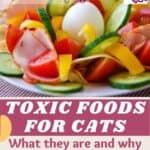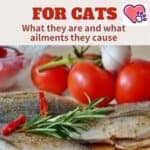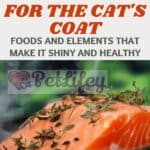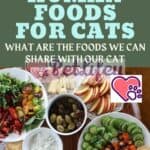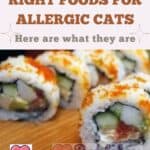
We often hear about mono-protein foods for cats: but what are they specifically? When and why should they be used? Let’s find out.
Cat is a pet that, despite its new social life, continues to make its “natural character” prevail: wild and an excellent predator. And also from the point of view of food, his nature has not abandoned him: he has remained a convinced carnivore.
And to guarantee him good health and happiness, we must ensure that he has a diet that is as close as possible to what he would choose in nature independently.
In other words, a diet based mainly on foods of animal origin, capable of satisfying all its nutritional needs.
But sometimes it can happen that our cat is affected by various ailments, such as diarrhea, digestive disorders, itching or dermatitis, and it is in this case that nutrition can play a fundamental role.
The cause of these disorders could be strictly connected to a food intolerance or an allergy, which in some cases is linked to a specific protein. What can I do to help my cat?
You have surely heard of monoprotein or “single protein” foods: well, these are the solution to this problem. Let’s find out what mono-protein foods are for cats , and when they should be used, but first a mention of food allergies and intolerances in cats.
Food intolerances and allergies in cats
Just like us humans, even cats can suffer from birth or develop allergies or intolerances to a food while growing up.
Usually these adverse reactions to a particular food act differently in the cat’s body, with the appearance of:
- allergies: the cat’s organism associates a danger to the food it has ingested, and to defend itself against it, but this reaction triggers inflammation in the whole body or in the digestive system;
- intolerances: in this situation the feline’s organism does not digest a food (or substances present inside it), and even on this occasion its defense reaction triggers inflammation in the whole body or only in the intestine.
Therefore, when the cat eats a food to which it is allergic or intolerant, its body defending itself triggers reactions which, depending on the case, can be:
- gastrointestinal: related symptoms are diarrhea, vomiting, abdominal swelling and weight loss;
- dermatological: itching, red skin and hair loss are the main symptoms that occur.
Unfortunately, when the allergy or intolerance is severe, these are joined by inflammations that can affect the ears and eyes, but also the heart and joints, kidneys and bladder.
But what are the foods that can cause these reactions in cats? Generally they are animal proteins, contained in chicken, turkey, cereals, fish, dairy products or eggs, for example, but also vegetable ones .
Still other times the cause is not of the specific protein contained in these foods but of everything behind that food: for example, linked to the breeding of an animal, which has been fed with hormones or supplements that are not healthy for kitty. Substances that will inevitably be found inside the food that cat and which are harmful to his body.
Since tests are imprecise and expensive to decipher cat allergies or intolerances through tests, the vet uses the exclusion diet: it consists in removing some foods from the cat’s diet one at a time, to understand when these reactions no longer occur. and, therefore, understand what the harmful food is.
Once identified, the other proteins that had been removed will be gradually reintroduced into the cat’s diet. This “procedure” is also called a “monoproteic diet”, as the cat will be fed only with monoproteic foods, precisely to monitor any reactions and identify which protein triggers the allergy or intolerance.
Monoproteic food for cats
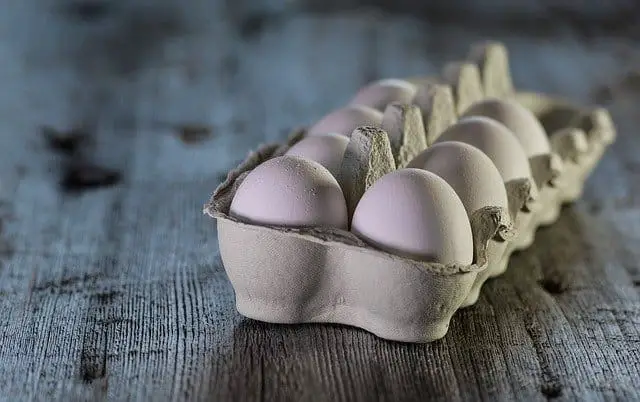
In recent years, this mono- protein diet and, therefore, mono-protein foods have been widespread in the diet of cats with food allergies or intolerances.
Discovered which is the offending food, when we go to buy food for our cat, we will be able to replace the protein harmful to him with another. In fact, on the packaging we will find written “monoproteic food based on salmon” or “only beef”, to give examples.
These are foods that have been produced in such a way as to contain only the protein related to that fish or that meat, with the addition of vitamins, mineral salts or amino acids: the mono-protein food ultimately consists of a food that contains only that type of meat or fish .
In this way we will be able to choose for the cat, who suffers from allergies or intolerances, only foods that guarantee him not to feel bad: his body “will not be attacked” by foods that are harmful to him, tolerating all the others in the right way. In this way, the inflammatory problem that hit him will disappear within a few weeks.
There are many types of mono-protein foods on the market, as well as tasty mono-protein snacks: we will be able to offer the cat a multiple variety of meals, even if the single meal will be based on a single protein, therefore mono-protein.

